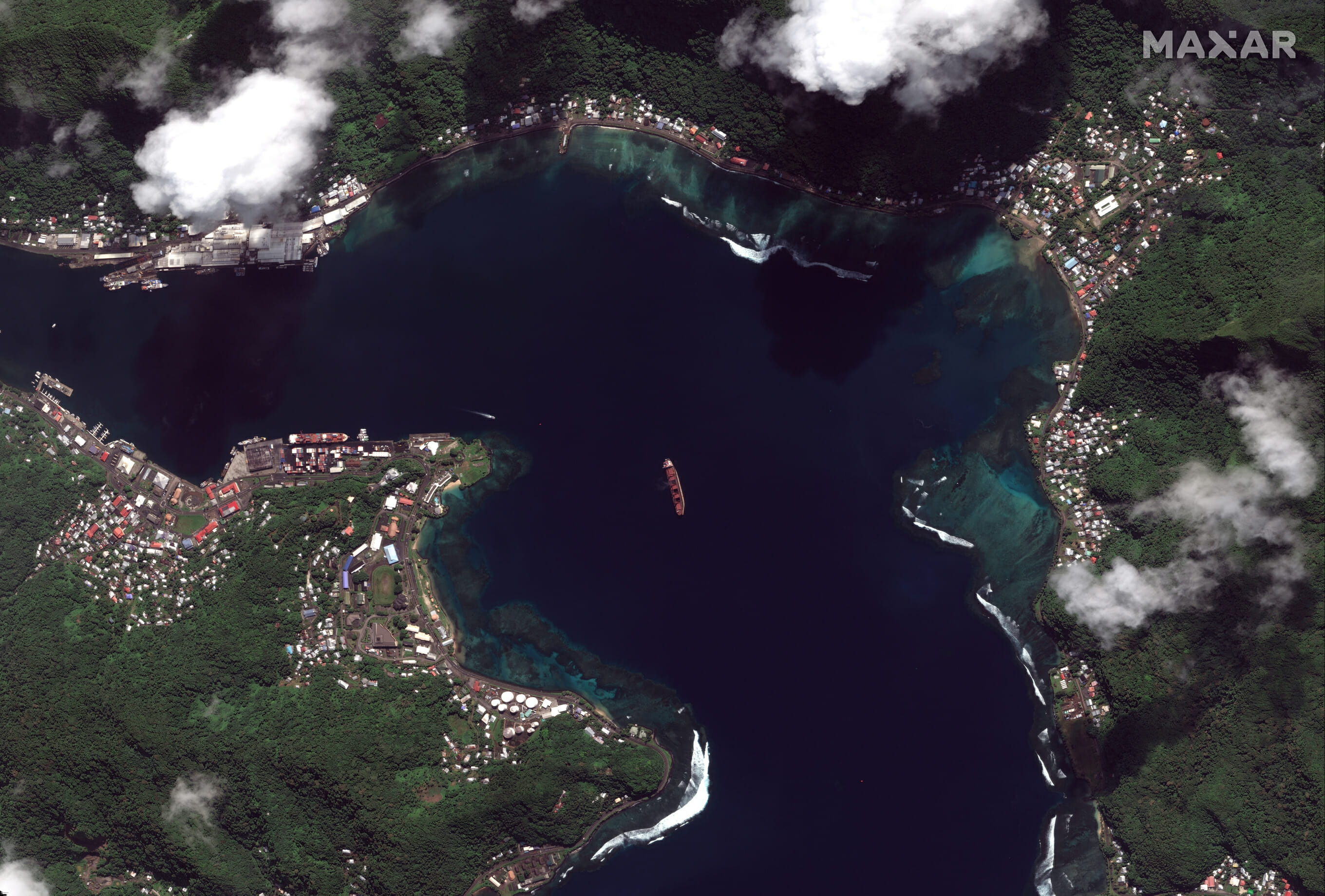
North Korea: US should consider consequences of ship seizure
UNITED NATIONS (AP) — North Korea’s U.N. ambassador said Tuesday the Trump administration should consider the possible consequences that the recent U.S. seizure of a North Korean cargo ship could have on relations between the two countries and immediately return the vessel.
Kim Song said at a news conference the “outrageous act” of seizing the ship was aimed at bringing maximum pressure on North Korea to make it “kneel down.”
The vessel Wise Honest, North Korea’s second largest cargo ship, was first detained in April 2018 by Indonesia while transporting a large amount of coal. The U.S. announced May 9 that it had seized the ship because it was carrying coal in violation of U.N. sanctions, a first-of-its kind enforcement action that came amid a tense moment in relations with North Korea.
The ambassador said the seizure was an “outright denial of the underlying spirit” of the June 12, 2018, joint statement by President Donald Trump and North Korean leader Kim Jong Un after their first summit in Singapore “which committed to establishing new bilateral relations.” At the summit, Trump promised “security guarantees” to Pyongyang and Kim recommitted to the “complete denuclearization of the Korean Peninsula.”
A second high-stakes summit between the two leaders in February collapsed over mismatched demands in sanctions relief and disarmament. The United States has urged allies to maintain economic pressure on North Korea until it takes material steps toward relinquishing its nuclear weapons.
The North Korean leader has since aired his displeasure with short-range missile tests apparently aimed at pressuring Washington and Seoul, and declared that the Trump administration has until the end of the year to come up with mutually acceptable terms for a deal to salvage the negotiations.
Kim, the ambassador, told reporters that the ship seizure is the “product of an extreme hostile policy of the United States against the DPRK,” the initials of the country’s official name, the Democratic People’s Republic of Korea. He accused the U.S. of violating international law and the 2004 U.N. Convention on Jurisdictional Immunities of States and Their Property.
Kim reiterated that he has asked Secretary-General Antonio Guterres to take “urgent measures” to contribute to stability on the Korean peninsula, but refused to answer a question on what measures.
The ambassador listened to about a dozen other questions, including the impact of the seizure of the ship on prospects for a third Kim-Trump summit and on relations between North Korea and South Korea, whether the ship was carrying contraband, the impact of U.S. and U.N. sanctions, and whether the North would apologize for the death of American student Otto Warmbier.
Kim said he wouldn’t answer questions not related to the seizure of the Wise Honest but then only repeated some points from his statement.
He ended the news conference saying: “We’ll sharply watch the reaction of the United States.”
The Western Journal has not reviewed this Associated Press story prior to publication. Therefore, it may contain editorial bias or may in some other way not meet our normal editorial standards. It is provided to our readers as a service from The Western Journal.
Truth and Accuracy
We are committed to truth and accuracy in all of our journalism. Read our editorial standards.
Advertise with The Western Journal and reach millions of highly engaged readers, while supporting our work. Advertise Today.












